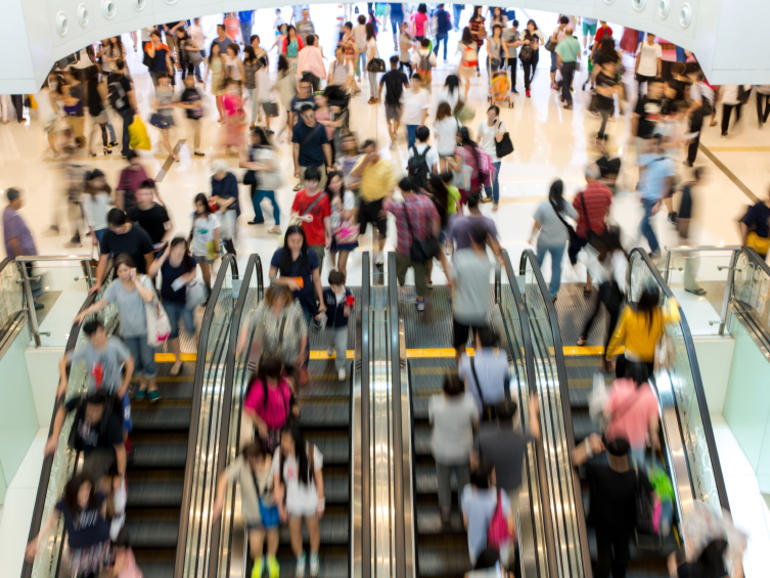The Burden of Consumers
 For me, the word “hypocrisy” is closely related to the word “broccoli.” When I was younger, I’d push those demonic little florets around my plate and wincingly gulp them down at the end of every meal. If I was lucky, I’d successfully sneak my broccoli into a napkin and surreptitiously chuck it out after dinner (I don’t think my sense of morality started developing until I was probably seven years old).
For me, the word “hypocrisy” is closely related to the word “broccoli.” When I was younger, I’d push those demonic little florets around my plate and wincingly gulp them down at the end of every meal. If I was lucky, I’d successfully sneak my broccoli into a napkin and surreptitiously chuck it out after dinner (I don’t think my sense of morality started developing until I was probably seven years old).
One evening during dinner, my dad noticed that I hadn’t touched the broccoli on my plate and chided me for not finishing my food. However, he went to the living room after finishing dinner, and I realized that a noticeable amount of broccoli still remained on his plate.
My five-year-old brain buzzed with excitement–his behavior reinforced the opposite of what he told me to do! A true scandal. I abandoned the florets on my plate and happily went to play in the living room, feeling justified in my actions.
As I’ve grown up, it has become clear to me that hypocrisy is often unnoticed and sometimes even normalized by society. And after delving into the world of supply chains this week at BSR, I noticed that like my father in the hypocritical broccoli incident of 2005, consumers tell companies to change their policies and practices, but then their actions reinforce the status quo.
During the webinars I attended this week, it was reiterated that the COVID-19 crisis has exposed the lack of resiliency of many major supply chains, particularly in the garment industry. Many supply chain experts voiced their belief that this crisis was an opportunity for corporations to bolster the resiliency of their supply chains by increasing transparency and conducting rigorous due diligence. Their hope was that vulnerable migrant workers at the bottom tier of the supply chain would actually be afforded social protection in the future and would be spared from shouldering the most devastating effects of a company’s plummet in profit like they do now.
But as much as we dream of having a perfect world in which everyone does the right thing and makes the wellbeing of others a top priority, at the end of the day, a for-profit entity exists, well, for profit. If outsourcing labor to other countries with loose enforcement of labor laws helps a company to cut costs, retain loyal customers, and keep prices low and profits high, then a company is going to keep doing just that.
While I do believe that this pandemic is an opportunity for companies to rethink their supply chains and make better decisions that favor laborers, the system is built so that even after the pandemic “ends”, companies and consumers–the people who drive profit for the company–must both willingly change their behavior permanently in order for tangible change to be cemented.
It may be easy for consumers to say they oppose violations of human rights and call on companies to change their policies and procedures, but the actions of most consumers often don’t line up with their words as they sometimes even drive the revenue stream for the very corporations they supposedly oppose.
Consumers tell corporations to finish their broccoli, but don’t do it themselves. In fact, consumers may go a step further and offer corporations a family size bag of chips, much to the chagrin of their health-conscious mother (this may or may not be a regular occurrence in my household).
However, the hypocrisy of many consumers is understandable and relatable. There is often an entanglement of tradeoffs that consumers must make, and if it’s possible to choose the option that will benefit their own families, wallets, and happiness, they’ll choose it.
Consumers often lack information about company and supplier practices while making their purchases, which then makes them unknowingly complicit in the actions of unethical suppliers. And the distance, physically and emotionally, that consumers have from laborers in foreign countries certainly doesn’t help the cause.
After all, the intention behind walking up to the cash register and purchasing fashionable pants that fit you well and are reasonably priced isn’t exactly the same as the intention behind forcing a migrant laborer to work overtime in dangerous conditions with little to no pay.
Some suppliers intentionally implement practices that harm laborers and maximize profit. But the majority of consumers, if not all, do not shop with the intent of perpetuating human rights violations. It’s highly troublesome that consumers bear the difficult burden of bridging the mental and emotional divide between their actions and the unseen consequences in order to realize the weight of their actions and significantly alter their behavior.
Organizations like BSR are pushing for corporations to do their part in reforming their ways, but the world is such that it isn’t enough for only companies to act. Consumers must act as well. Like it or not, know it or not, we all have played some part in the harms brought about by companies. But collectively, we all have the power to enforce change.
So, let’s all try our best to set an example by finishing our broccoli and ensuring that corporations finish theirs too.
